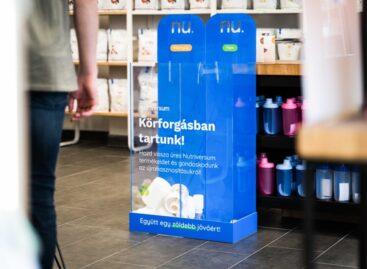Hungarians consume many times the daily requirement of vitamin C, unnecessarily
The human body needs a daily intake of 80 mg of vitamin C, according to the recommendations. In contrast, 40 percent of Hungarians consume 1,000 mg every day – according to an online survey conducted by Quattroceutical with 1,021 people interviewed*. According to Nikoletta Molnár, senior researcher at Proformance Laboratories, former scientific associate of the Hungarian Academy of Sciences, creator of Stilla drops, this is also not useful because excessive vitamin C intake can be a predisposing factor for kidney stone formation.
The specialist explained that since it is a water-soluble vitamin, excess ascorbic acid is excreted in the urine in 4-6 hours. It is more appropriate to supplement several times a day, in smaller doses. Vitamin C is absorbed in the intestines, but the more we take at once, the more our body empties it. In general, up to 200 mg, the absorption of vitamin C is almost 100%, at 1000 mg it is only about 50-60%, but even this can be said to be extremely good.
“Let’s not forget that the daily intake includes either our fruit and vegetable consumption or the amount of extra vitamin C added to another product. If we take an extra 1000 mg of vitamin C, it can be a lot for our kidneys.”
– said Nikolett Molnár, who added that in addition to regularity, it is also important in what form we introduce vitamins and minerals into our body. With the drops, only the active ingredient is introduced, there is no need for anti-caking agents, fillers, squeezers, or other artificial substances that unnecessarily burden the body. In the case of water-soluble vitamins and active ingredients, this is the most effective intake method.
Related news
The range of HIR trademarked products has further expanded
🎧 Hallgasd a cikket: Lejátszás Szünet Folytatás Leállítás Nyelv: Auto…
Read more >The Hungarian pavilion of the Osaka World Exhibition was presented in Tokyo
🎧 Hallgasd a cikket: Lejátszás Szünet Folytatás Leállítás Nyelv: Auto…
Read more >Nutriversum is replacing plastic waste with vitamin C throughout October
🎧 Hallgasd a cikket: Lejátszás Szünet Folytatás Leállítás Nyelv: Auto…
Read more >Related news
Veganuary inspires millions of people in the UK
🎧 Hallgasd a cikket: Lejátszás Szünet Folytatás Leállítás Nyelv: Auto…
Read more >The Store of the Future opens again at the SIRHA Budapest exhibition! (Part 4)
🎧 Hallgasd a cikket: Lejátszás Szünet Folytatás Leállítás Nyelv: Auto…
Read more >








